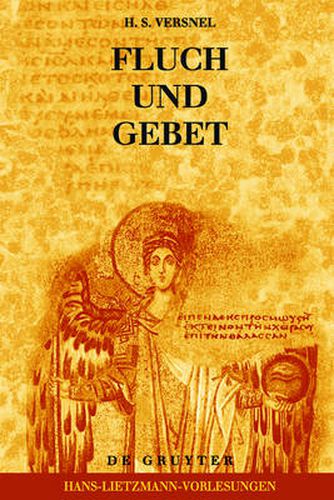Readings Newsletter
Become a Readings Member to make your shopping experience even easier.
Sign in or sign up for free!
You’re not far away from qualifying for FREE standard shipping within Australia
You’ve qualified for FREE standard shipping within Australia
The cart is loading…






This title is printed to order. This book may have been self-published. If so, we cannot guarantee the quality of the content. In the main most books will have gone through the editing process however some may not. We therefore suggest that you be aware of this before ordering this book. If in doubt check either the author or publisher’s details as we are unable to accept any returns unless they are faulty. Please contact us if you have any questions.
This study touches on the vexed issue concerning the relationship of magic and religion, a problem that, despite all claims to the contrary, stubbornly resists losing interest and import. A close reading of ancient Geek and Latin curses written on lead tablets reveals a never fully explored demarcation in terms of legitimacy and illegitimacy between two types. Binding curses (defixiones), on the one hand, were meant to ‘bind’- that is render powerless- opponents or rivals. Buried in graves, pits or wells, they lacked references to the notion of justification and displayed words and actions of a manipulative nature that modern readers would associate with what we call magic. Marked by secrecy, they were liable to suspicion and social disapproval. Another category of curses on lead, albeit also categorized as defixiones in modern scholarly literature, appears to be of a radically different nature. Often publicised in temples they implored the local god to punish a (mostly) unknown person for having wronged (by theft, slander, or maltreatment) the author. Besides a markedly deferential tone and an attitude of submissiveness, various other characteristics reveal these texts as prayers for justice, thus in our perception being expressions of pious religiosity. The fact that the ancient users were aware of the distinction and acted accordingly evokes a reconsideration of the use of modern notions magic and religion for ancient Greek and Roman curse practice.
$9.00 standard shipping within Australia
FREE standard shipping within Australia for orders over $100.00
Express & International shipping calculated at checkout
This title is printed to order. This book may have been self-published. If so, we cannot guarantee the quality of the content. In the main most books will have gone through the editing process however some may not. We therefore suggest that you be aware of this before ordering this book. If in doubt check either the author or publisher’s details as we are unable to accept any returns unless they are faulty. Please contact us if you have any questions.
This study touches on the vexed issue concerning the relationship of magic and religion, a problem that, despite all claims to the contrary, stubbornly resists losing interest and import. A close reading of ancient Geek and Latin curses written on lead tablets reveals a never fully explored demarcation in terms of legitimacy and illegitimacy between two types. Binding curses (defixiones), on the one hand, were meant to ‘bind’- that is render powerless- opponents or rivals. Buried in graves, pits or wells, they lacked references to the notion of justification and displayed words and actions of a manipulative nature that modern readers would associate with what we call magic. Marked by secrecy, they were liable to suspicion and social disapproval. Another category of curses on lead, albeit also categorized as defixiones in modern scholarly literature, appears to be of a radically different nature. Often publicised in temples they implored the local god to punish a (mostly) unknown person for having wronged (by theft, slander, or maltreatment) the author. Besides a markedly deferential tone and an attitude of submissiveness, various other characteristics reveal these texts as prayers for justice, thus in our perception being expressions of pious religiosity. The fact that the ancient users were aware of the distinction and acted accordingly evokes a reconsideration of the use of modern notions magic and religion for ancient Greek and Roman curse practice.